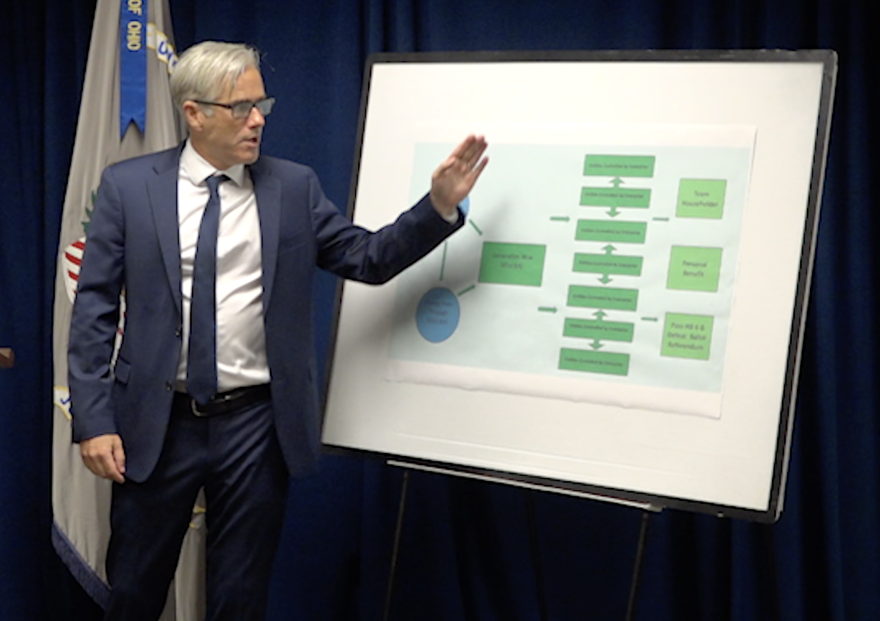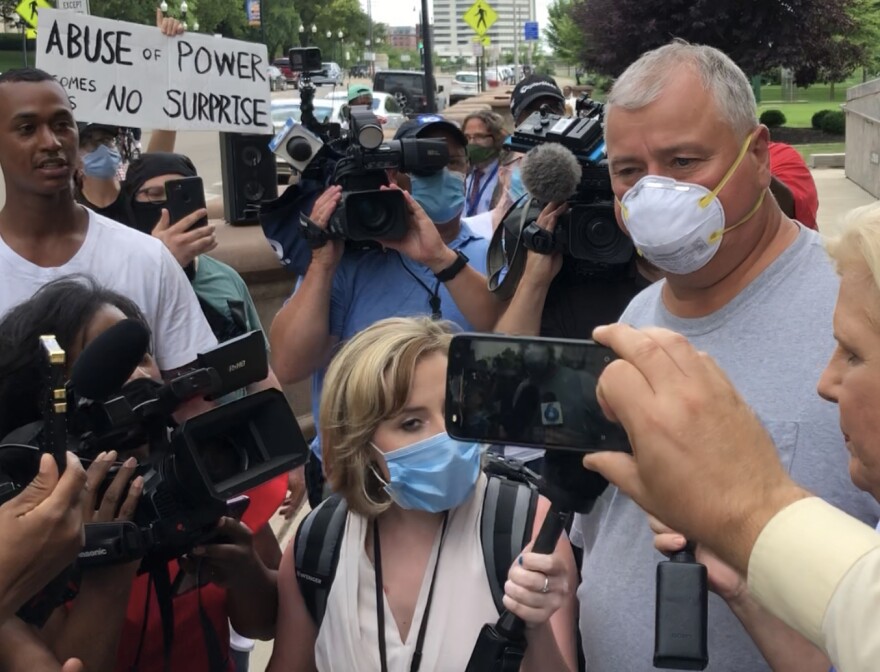It was a balmy Tuesday morning two years ago when federal agents arrived at the rural Perry County home of Ohio House Speaker Larry Householder.
News that one of the most powerful GOP leaders in the state was arrested – as well as the apprehension of four other well-connected lobbyists and consultants – sent shockwaves through the political world in Ohio and around the country.
David DeVillers, then-U.S. attorney, explained the charges and unveiled the investigation into a $61 million bribery scheme.
"Make no mistake. These allegations are bribery, pure and simple. This was a quid pro quo. This was pay-to-play,” said DeVillers.
DeVillers said Householder created a dark money group known as “Generation Now” to funnel money in from FirstEnergy, which had owned the nuclear power plants.

DeVillers said that money was used by Householder to build support in the legislature and eventually become speaker. In return, Householder was accused of pushing a $1 billion nuclear bailout for FirstEnergy, through HB6 in 2019.
Watch: Protesters confront Householder outside federal courthouse in 2020
Last year, FirstEnergy signed a corporate plea deal admitting to bribing Householder and at least one other public official. That agreement led to FirstEnergy accepting a $230 million fine.
Householder has pleaded not guilty and has maintained his innocence, even on the House floor in June of last year when his fellow lawmakers took up a vote to expel him from office.
“I have not, nor have I ever took a bribe or provided a bribe. I have not nor have I ever solicited a bribe. And I have not nor have I ever sold legislation,” Householder said in June 2021.
No new rules for dark money groups
Catherine Turcer, Common Cause Ohio executive director, said the state is still reeling from the corruption.
Turcer’s group advocates for accountability and transparency, which includes shedding light on dark money groups to avoid a bribery scheme like the one FirstEnergy admitted to in 2021.
“We have now been waiting two years for the state legislature to actually take action and create greater transparency so this never happens again,” said Turcer. “Unless we create better disclosure and by that I mean prompt disclosure, we're going to be in an endless cycle of corruption.”
Most of HB6 remains in effect
While the subsidies for the nuclear power plants have been scrapped, Republican leaders in the legislature have refused to pass a full repeal of HB6, despite the bill being tied to the bribery scheme.
“Consumers are getting hosed in Ohio right now and they know it,” said consumer advocate Lisa Maatz, Ohio Citizens Action’s senior advisor.
Other elements of HB6 remain, including guaranteed coal subsidies, a roll back of renewable energy standards and the elimination of energy efficiency requirements.
“Politicians have been counting on consumers having short memories about it. But the reality is the sting of this is lingering and we get a reminder of it every month when our bills come up,” said Maatz.
Maatz and other advocates question Gov. Mike DeWine’s involvement in the scandal. DeWine appointed Sam Randazzo as chair of the Public Utilities Commission of Ohio. FirstEnergy said it also bribed Randazzo. The former PUCO chair, who resigned after the FBI raided his home in November 2020, has said he did nothing wrong and has not been charged with a crime.
DeWine’s spokesperson says DeWine has never been the target of the investigation.
FirstEnergy lobbyist Juan Cespedes and Householder strategist Jeff Longstreth have pleaded guilty to the charges. Another defendant, longtime statehouse lobbyist Neil Clark, died by suicide last year.
Former Ohio Republican Party chair Matt Borges has pleaded not guilty, and has claimed his work in opposing former president Trump in 2020 led to his arrest in the scandal.
The trial for Householder and Borges is set to begin in January.





